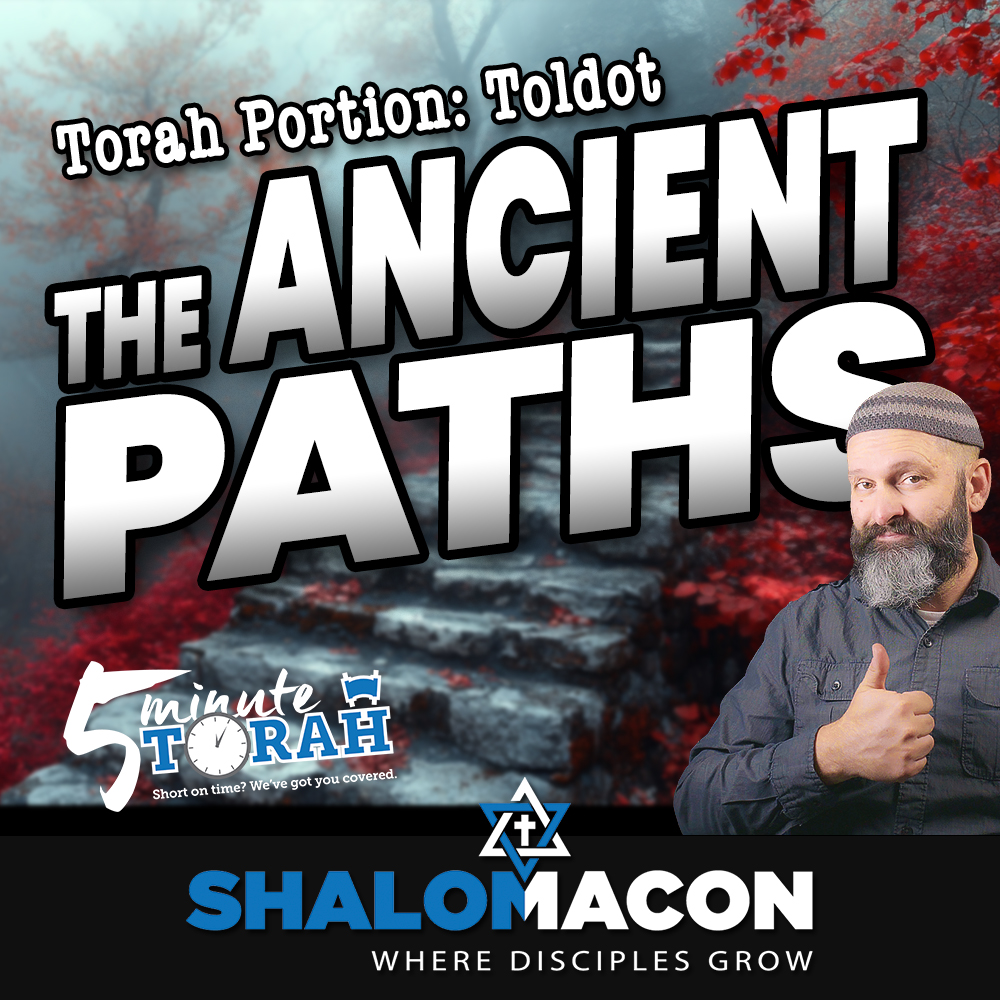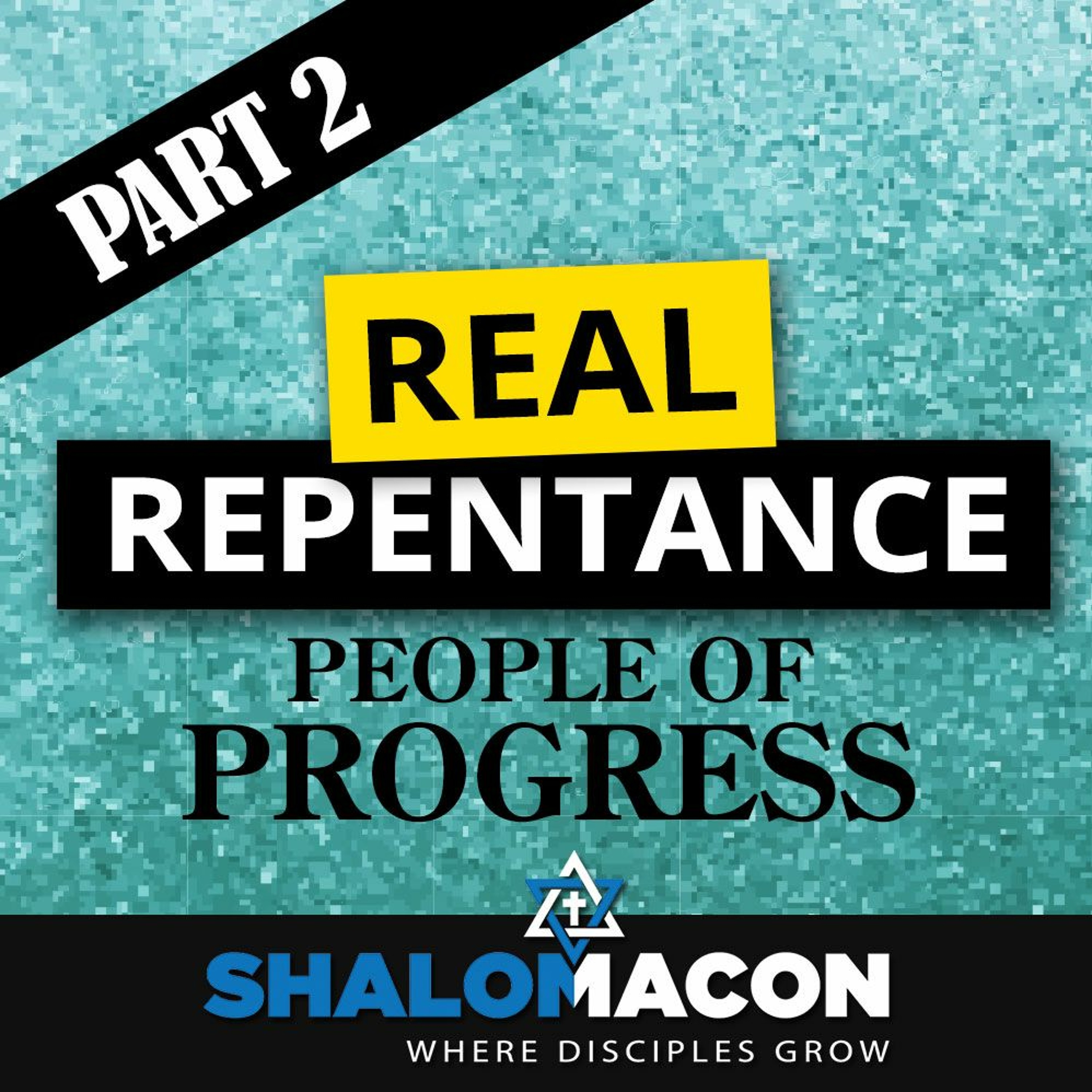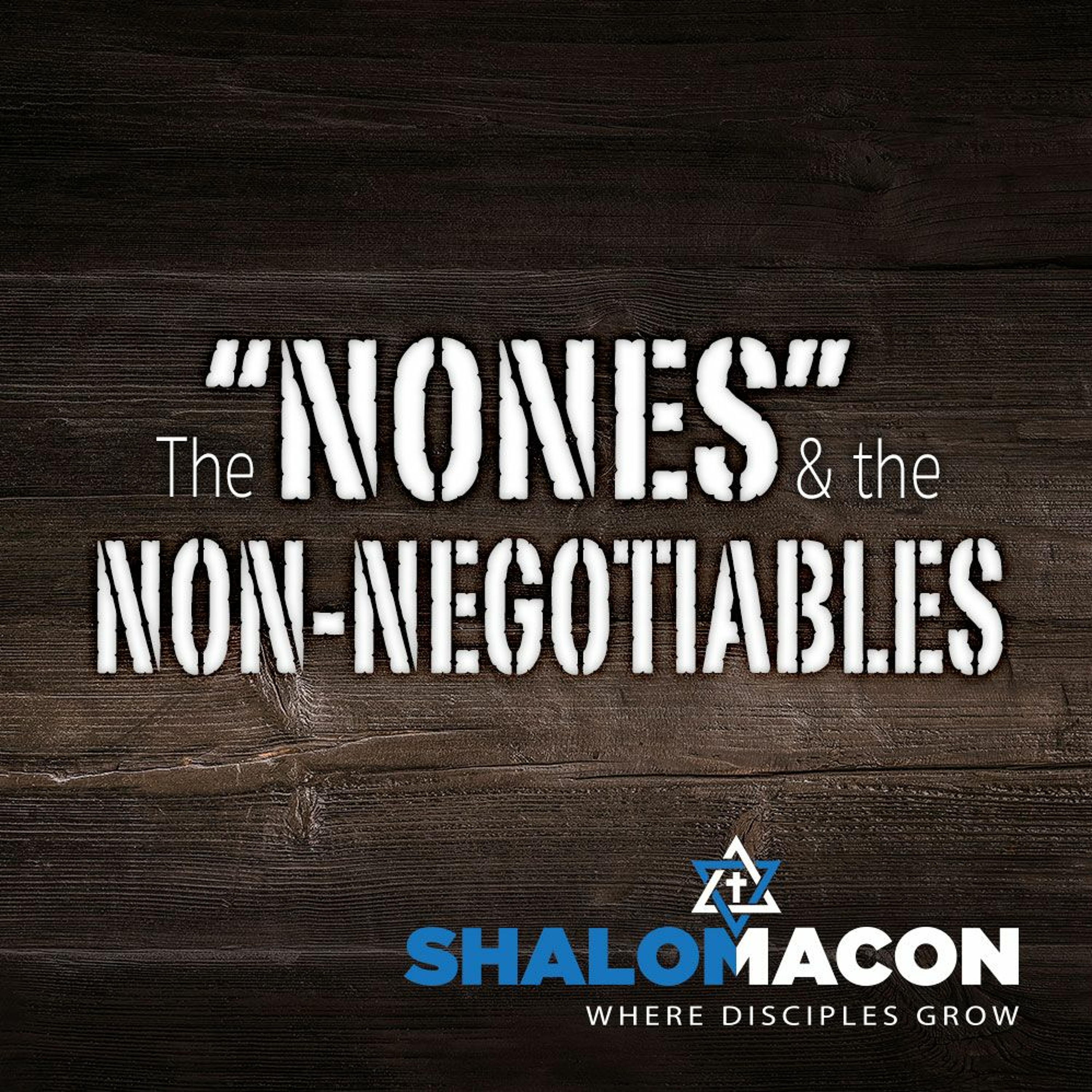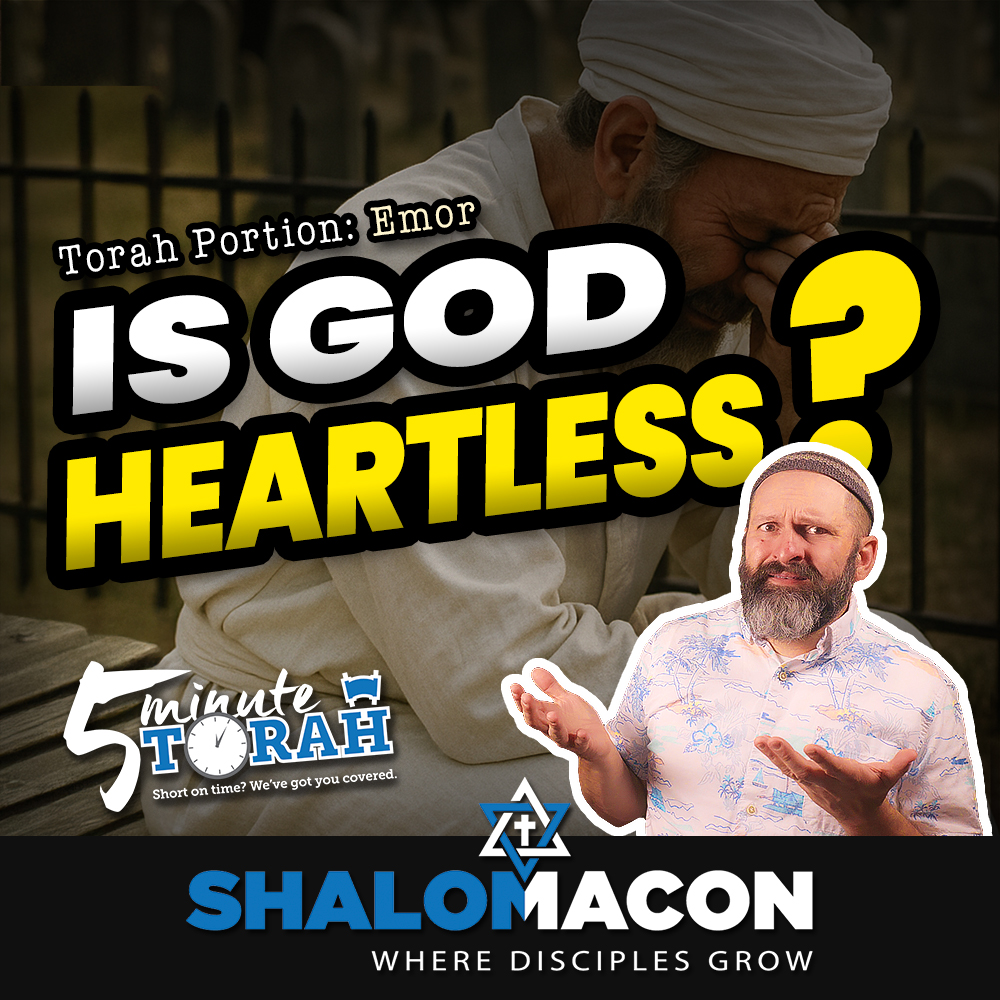Episode Transcript
[00:00:00] Yeshua's gospel, or good news, revolved around the call to repentance. Although the prophets introduced this message, John the Immerser, he really wasn't a Baptist, took on this message in earnest and passed the torch to Yeshua. As we know, repentance means to turn around or turn back. But what will it look like when a whole generation repents and has a change of heart? I think we can catch a glimpse of what it might look like in this week's five Minute Torah Shalom. It's good to have you back here. I'm Darren and I'm excited to be with you again for another video on the weekly Torah portion. Before I get into my five Minute Torah commentary, here are a few quick facts about this week's Torah portion. This week we're studying the Torah portion of Toledot Genesis 25:19 28:9 and here are the three things that you need to know about it. Number one wrestling in the womb Jacob and Esau the Torah portion of Toldot gives us the backstory of the conflict between Isaac's twin sons, Jacob and Esau. From the womb, there was a strife between them. Sensing the trouble within her, Rebekah asked the Lord, what is going on? He responds by telling her, two nations are in your womb and two peoples from within you shall be divided. The one shall be stronger than the other. The older shall serve the younger. After telling of their unique birth where Esau is born, with Jacob holding onto his heel, the Torah quickly moves into the story of Esau spurning his birthright and selling it to his brother Jacob for a pot of lentil soup, setting the stage for what happens at the end of the Torah portion. Number two Isaac and Abimelech like father, like son. Another famine hit Canaan as it did in the days of Abraham, and Isaac repeated his father's actions nearly verbatim. He took his family toward Egypt, but only as far as the Philistine city of Gegar. When he entered the city, he pretended that Rebekah was a sister, like his father Abraham had done with Sarah. One day, Abimelech, the king of the Philistines, looked out of his window and saw Isaac flirting with Rebekah and realized she was not Isaac's sister but his wife. He rebuked Isaac and sent out a decree that Rebekah be protected from any lustful man in his city. Once again, God protected his children despite their seemingly poor choices. And number three, the first heist, Isaac blesses Jacob. Although God had promised Rebekah that Jacob would be the one he would choose over his older brother Esau. Evidently it wasn't a known fact with the rest of the family. It seems as if Isaac fully intended on carrying on with Esau at the lead. In his old age, his vision had gotten to the point where he had trouble making out the features of people and evidently couldn't tell his sons apart by merely their looks. Rebekah uses this to her advantage and has Jacob pretend to be Esau when his brother was away in order to receive Isaac's blessing that was supposed to be reserved for Esau. For many years after this event, Jacob would live in fear of his brother's retribution. Hey, Hanukkah is right around the corner. If you want to have a family experience for Hanukkah, be sure to pick up your copy of Eight Lights, my Hanukkah how to and Devotional that will make each night of Hanukkah a night to remember. It has nearly 150 five star reviews on Amazon and has consistently been in the top 10 bestsellers for the Messianic Judaism category in the weeks leading up to Hanukkah, and now it's available on Barnes and Noble as well. So if you want to have fun and learn to be a better disciple of our Master Yeshua, then check out my book Eight Lights, using the link below. This week's tour commentary is called the Ancient Paths and comes from my book 5 Minute Torah Volume 3. Parashat Toldot gives us the backstory of the conflict between Jacob and Esau. It tells of the birthright in the account of Jacob coming out with the one hand holding onto Esau's heel, Esau selling his birthright, and Jacob receiving the blessing of the firstborn in place of his older brother Esau. It also gives us some interesting information about Isaac in his life. When he settled in Gerar, he needed a source of water rather than digging new wells. He unearthed the wells his father had dug. It says, and Isaac dug again the wells of water that had been dug in the days of Abraham, his father, which the Philistines had stopped up after the death of Abraham, and he gave them the names that his father had given them. Genesis 26:18 Minrash Hagadol says that from these events we can learn the humility of Isaac. How so? Rather than digging new wells or renaming the ones his father had dug, Isaac reopened his father's wells and gave them the same names that his father had given him. Isaac wasn't concerned about making a name for himself. He was concerned only about preserving the name of his father and then the peoples of the land. This kind of attitude is rare, especially in our day when children leave the nest, journey out on their own. Most often their mission is to make a name for themselves. And as they get older, they begin to think of ways to create some kind of legacy to immortalize themselves. The ancient pharaohs of Egypt built pyramids in an attempt to maintain their memory in this life as they pass to the next. And in a sense, they have. We still have these pyramids and speak the names of many of these Egyptian kings to this day. Kings and rulers have been betrayed and even murdered by their own sons and daughters because of their hunger for power and fame. The egocentric seed within the heart of man often blossoms to bring forth its fruit at the expense of the ones from whom that very life was given. The prophet Malachi, however, foresaw a day in which this propensity would come to an end. Behold, I will send you Elijah the prophet, before the great and awesome day of the Lord comes. And he will turn the hearts of fathers to their children and the hearts of children to their fathers, lest I come and strike the land with a decree of utterly destruction. This is Malachi 323 24. The actions of Isaac in this Torah portion foreshadow this prophetic future and gives us a glimpse of a time when the hearts of parents and children are turned toward one another. As I mentioned in previous volumes of five Minute Torah, this Torah portion begins with an unusual statement. These are the generations. The Hebrew here is toldot of Isaac. Abraham's son Abraham fathered Isaac. This is Genesis 25:19. The toldot or legacy of Isaac was that he was an identical image of his father Abraham, both physically and spiritually. He received his character from his father. Abraham had another older son, Ishmael, but Ishmael didn't inherit the blessings and covenant from his father. Isaac was the true heir to the covenant God made with his father. As it says, through Isaac shall your offspring be named.
[00:07:00] His heart was toward his father and his father's heart was toward him. Although Isaac was a foreshadowing of the prophetic events revealed to the prophet Malachi, how will this reality be made manifest in the future? The Gospels record for us the calling of John the Immerser as spoken by the angel Gabriel. He will turn many of the children of Israel to the Lord their God. And he will go before him in the spirit and power of Elijah to turn the hearts of the fathers to the children and the disobedient to the wisdom of the just to make ready for the Lord, a people prepared Luke 1:16 17 how did John accomplish this mission? Through his Gospel proclamation, Repentance for the kingdom of heaven is at hand. Those who heeded his good news repented from their ways and God renewed their hearts, causing their hearts to be properly oriented toward both God and man. The same is true today. If true repentance takes place, it will produce the fruit of righteousness. Where are we on this timeline today? Are our children growing closer to us and our spiritual fathers Abraham, Isaac and Jacob, or are they growing more distant? May we fully accept the Gospel message of repentance so that our generation will have a heart for the fathers and our fathers for them before you run off, I want to give you an opportunity to receive a personalized copy of Eight Lights, my Messianic Hanukkah devotional. I'll be giving away a copy of this, completely free, shipping included, to one of you. Unfortunately, this is only for US residents, but all you have to do is Post the words 8lights as a comment below to enter for a chance to win a copy of my book. And for anyone who isn't currently a subscriber to the Shalom Makin YouTube channel, you can double your chances of winning by, number one, subscribing to our channel and number two posting. I subscribed in the comments as well. I'll be picking a winner at random and announcing the winner in two weeks. That's December 13th of 2024, so get your entries in quickly. If you would like a chance to pick up a copy a free copy of my book Eight Lights. And don't forget to keep up with our series Repaving the Romans Road. You can check it out right here. Blessings from Shalom Makin, the place where disciples of Yeshua learn, connect and grow.



